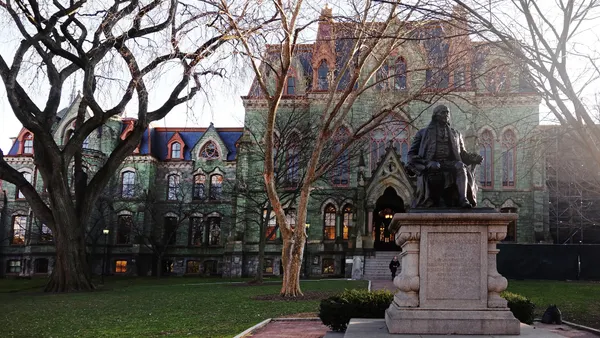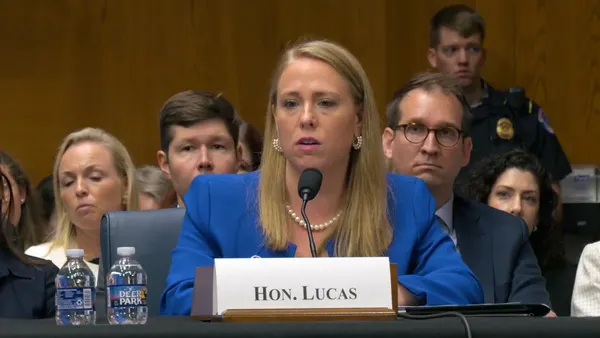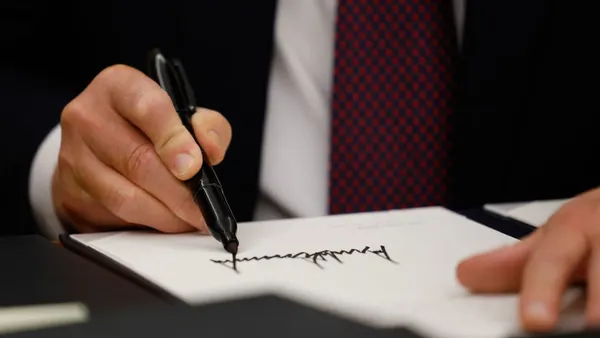Dive Brief:
- Samantha Elauf, a teenager, applied for a job at an Abercrombie & Fitch clothing store in Tulsa, OK. Elauf regularly wore a hijab, a head scarf, as part of her Muslim faith.
- The company declined to hire Elauf, claiming the scarf clashed with its dress code, which banned head coverings. Elauf filed a charge with the EEOC, alleging religious discrimination. The EEOC then filed a lawsuit against Abercrombie on her behalf.
- After a series of lower court decisions, in an 8-1 decision the U.S. Supreme Court ruled in favor of the EEOC and Elauf, ruling that Elauf was not required to make a specific request for a religious accommodation.
Dive Insight:
According to HRMorning.com, the decision means employers can’t take an adverse action against an employee or job applicant when the motivation behind the action is to avoid having to accommodate one of the person’s religious practices. The Supreme Court ruled that employers have to explore possible religious accommodations when they have at least some idea that a person would require such an accommodation.
Also, employees and job applicants don’t need to explicitly state the need for a religious accommodation to trigger an employer’s obligation to seek out possible accommodations. The Court ruled that all an employer needs is an inkling that a person would need a religious accommodation for that employer to then be required to consider accommodations.
In related article, the law firm of McAfee & Taft explains that In some ways, the Court’s decision may have the unintended result of causing some employers to ask applicants and employees about their religious beliefs or trigger unfortunate workplace stereotyping.












